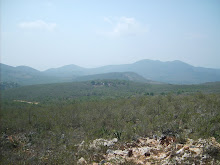EDITED FROM PRESIDENTIAL SPEECH:
We have a problem in Iraq and the honest truth is, there is no good solution. In theory, I would like nothing more than to withdraw from Iraq right now. We have sacrificed far too many American and Iraqi lives in this fight, and it’s costing us $5,000 a second to fund this war. We should never have gone there and we are in a huge mess that we neither understand nor can fix. There are a countless number of other global issues we could be working on, HIV and AIDS prevention in Africa to name one. Unfortunately, there is no feasible way for us to pull out of Iraq right now without the situation deteriorating.
Iraq is incredibly unstable right now and if we withdraw, I think the country will collapse. At the very least, the Iraqi death toll will increase tenfold and death squad killings of Sunnis would rise.
We were asked to come up with a proposal to fix Iraq and I have some ideas but I do not have enough knowledge on the subject to create a concrete plan. Here is what I think though. I think that we have to change the focus of our involvement in Iraq. For the past years we have been focused on fighting al-Qaeda and insurgents. We should continue to fight against the terrorists who are a threat to the world but we also need to be realistic about our expectations in that struggle. We need to realize that we are not going to defeat the entire al-Qaeda organization solely by beating them in Iraq. Their organization is spread throughout many regions and if we beat them in Iraq, they will just go somewhere else. We should continue to protect the citizens of Iraq from attack as well. I feel that we need to increase our focus on working to bring peace and stability to Iraq.
My idea was to create two committees/focus groups who will devote their time and expertise to this: the Iraqi-based committee and the United States-based committee. The Iraq-based committee’s specific purpose will be to help the Iraqi government reestablish themselves and create a system of government that will best work for Iraq. The committee will be stationed in Iraq and work with the Iraqi government, as well as help them coordinate with other governments around the world. Political strategists, diplomats and experts from all over the world would be invited to join it. The key to this initiative is that its purpose is to help Iraq stabilize itself. Neither America nor any other countries involved will push its own agenda because that sabotage the process and what we need more than anything is a stable, self-sustaining Iraq.
The United States-based committee will evaluate and monitor the situation in Iraq and advise the president and senior staff on the best courses of action. This committee will include political specialists, ambassadors, military advisors and Middle Eastern experts who understand the region. These would be primarily Americans but we would reach out to the world as well. I think it is incredibly important that these advisors include Middle Eastern experts because as a region, it is so different from ours and to make good moves, we need to understand the culture there.
We also need to reach out to other nations and begin to repair our damaged ties. In the years that we have spent focusing on Iraq, we have let these relations slide. We will help Iraq to build allies with other countries as well and try to change the image that Bush gave our country. We need other countries to know that we will listen to them and compromise and that we are not above international laws.
I think every 6-8 months, the US committee should formally meet with the president, senior staff and Joint Chief of Staff to reassess the situation. The committee would be monitoring the situation constantly. I cannot give a detailed withdrawal plan, because it depends on the stability of the country and I also do not understand the military system well enough, so my plan would be very uniformed. I know that we need to help keep Iraq together though. If Iraq falls apart, the ensuing chaos will spread throughout the already volatile region, probably to Syria and Iran and that is the last thing anyone needs. I hope the troops come home as soon as they can though.
